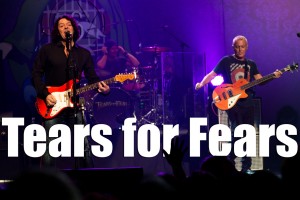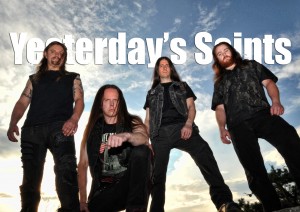Shutter Island
5 min read Very few directors these days have the technical prowess and sheer storytelling ability of Marty Scorsese. Chances are if you don’t enjoy his films on some level, there’s something wrong with you. Scorsese has received five Academy Award nominations for Best Director (not to mention two writing nominations) and won in 2007 for The Departed. He must be doing something right. He’s one of the masters. If you don’t get what he’s doing, it’s definitely your problem. You have bad taste and should therefore hang your head in shame and go home.
Very few directors these days have the technical prowess and sheer storytelling ability of Marty Scorsese. Chances are if you don’t enjoy his films on some level, there’s something wrong with you. Scorsese has received five Academy Award nominations for Best Director (not to mention two writing nominations) and won in 2007 for The Departed. He must be doing something right. He’s one of the masters. If you don’t get what he’s doing, it’s definitely your problem. You have bad taste and should therefore hang your head in shame and go home.
I went to see Scorsese’s latest, Shutter Island, amid a general blasé sentiment toward the film among many of the online reviewers I follow on Twitter. Initially, the trailer had piqued my interest, but subsequent inundation by Paramount’s marketing department eventually got on my nerves. But I’m a sucker for period thrillers, and I’ve always been a fan of dreary, isolated island settings (maybe this has something to do with Sierra’s Phantasmagoria back in the mid-90’s, who knows?).
Despite any possible negatives, I decided to see it. After all, it’s Scorsese, and it boasts a substantial cast, acting heavyweights Leo DiCaprio, Ben Kingsley and Max von Sydow, not to mention recent favorites like Mark Ruffalo and Jackie Earle Haley (still can’t believe he played Kelly Leak in The Bad News Bears). I’ve even been warming up a bit to Michelle Williams who is becoming a decent little actress (though I abhorred her in the Kevin Williamson insult to intelligence known as Dawson’s Creek).
Shutter Island begins by introducing us to federal marshals Teddy Daniels (DiCaprio) and Chuck Aule (Ruffalo) who have been assigned to investigate a mysterious disappearance at Ashecliffe (there’s symbolism in that name, methinks), the country’s only hospital for the criminally insane, located on an isolated island off the Massachusetts coast. When Daniels and Aule reach the dock they are ushered into the back of a truck and driven up to the institution. As the truck rolls into the gated sally port, the music builds to an all-out assault on the eardrums, a cacophony signaling the progression from sane to insane. The gates open, and the music stops. Like Daniels and Aule, I too have joined the ranks of the deranged. At that moment I was trapped, or, more accurately, I was hooked, ready and willing to delve into the mystery of Shutter Island.
Daniels and his partner proceed to investigate the disappearance of Rachel Solando, a woman who murdered her three children and who has been unable to accept that she committed such a vile act or that she is even a patient in the hospital. No one can explain how Rachel escaped, and the facility’s lead psychiatrist, Dr. Cawley (Kingsley), and the staff are somewhat less than cooperative. As Daniels’ investigation continues, he confides to his partner that he believes there is something much more sinister happening at the institution than what brought them there. As the marshals look for clues that will reveal the deeper conspiracy at hand, we are shown glimpses into Daniels’ former life through his disturbing dreams. We learn that Daniels, as a soldier, had participated in the liberation of the Dachau concentration camp. Also, Daniels’ young wife, Dolores (Williams), had previously died in a fire caused by an arsonist named Andrew Laeddis. Daniels has come to believe that Laeddis is being held in the Shutter Island asylum, but he swears that revenge is not his aim. He is convinced that the staff at Ashecliffe have been experimenting on the patients to nefarious ends. Having seen these kinds of violations of humanity in the War, Teddy vows that he will expose the truth. But even if he can find the proof, Daniels fears that Dr. Cawley will attempt to discredit him, label him insane and deposit him in the darkest reaches of the asylum where the truth will never see the light of day.
Shutter Island is beautifully stylized. Scorsese is a master of hypnotic visuals that create layer upon layer of mind-numbing confusion. That’s not a bad thing; we are meant to continuously question whether what we are seeing is real or illusion. Daniels’ dreams seem to be fused with reality to the point that, even when the character wakes, we’re never quite sure if we have actually left the dream at all. To summarize, Shutter Island is one big psychological mind-game, for the characters and for the audience. It’s an enthralling ride that compels you to root for Daniels as he searches for the truth, but this is also the problem. We want Teddy to bust the conspiracy wide open because it will save us from the revelation that we know is coming. The problem is that Shutter Island is ultimately predictable. Any lover of film with half a brain knows what is happening. Why? Because we’ve seen it in a hundred other movies before this one.
Does this obvious outcome ruin the movie? Whereas normally I would say that it does (I typically loathe predictability in my movies), I would argue the opposite in the case of Shutter Island. The conclusion is the only possible outcome available. It’s what the story demands. Should I blame the story and hate the movie because other stories before it have gone down similar roads? I could do that, but this story is so well told; I just can’t despise it. I can only appreciate its craftsmanship. Teddy Daniels is, to me, reminiscent of the tragic heroes in Shakespeare’s plays. We know that Hamlet and Othello will ultimately come to a messy end, but we can still enjoy the story as it unfolds.
Shutter Island may not be Scorsese’s best film. It may not win any awards or see a large box office take beyond its first weekend. But it is a solid addition to an admirable library of work from Scorsese. If you think it’s not worth watching because you understand where it’s probably heading, my advice is to enjoy the ride. Who knows? Maybe it’ll turn out differently if we grip our armrests just a little harder. In my opinion, Shutter Island is a must-see for Scorsese fans, but all true movie-lovers should enjoy it as an example of engaging storytelling and brilliantly stylized filmmaking.
One more thing: pay close attention to the final scene. It contains the real twist of the film, and if you’re not good at interpreting subtext (and subtle acting), you may miss it completely.






